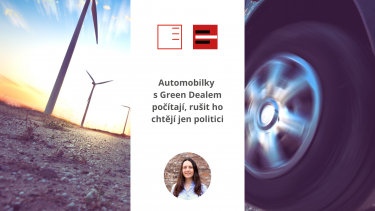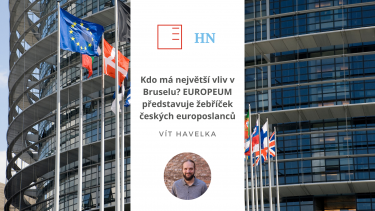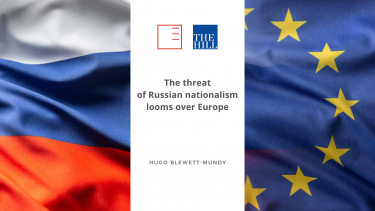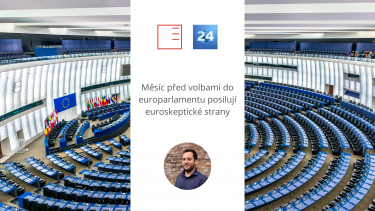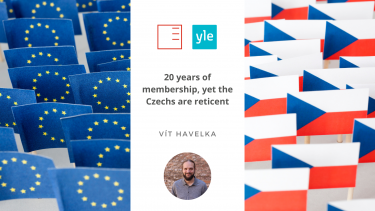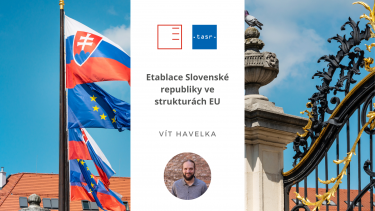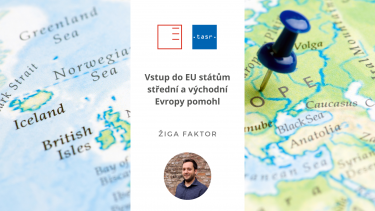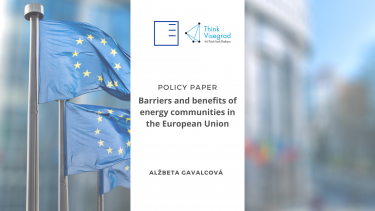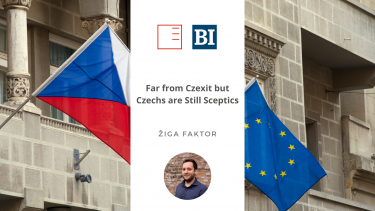iRozhlas.cz | Automobile companies are on board with the Green Deal, it is only politicians who want to scrap it
The Green Deal for Europe is an ambitious strategy to ensure that Europe becomes the first climate-neutral continent by 2050. Most of the parties running for the European Parliament want to change this strategy, despite the fact that the car companies are already anticipating the transition. EUROPEUM Institute researcher Kateřina Davidová commented on the topic in an article for iRozhlas.cz.
Show more
Hospodářské noviny | Who has the biggest influence in Brussels? EUROPEUM presents the ranking of Czech MEPs
MEPs who are running for re-election in the upcoming European Parliament elections emphasize their influence in Brussels and Strasbourg, as well as their ability to shape public opinion in the Czech Republic. The actual extent was examined by EUROPEUM Institute, which compiled a ranking of the influence of Czech MEPs based on a survey of 100 Czech EU experts. Vít Havelka from EUROPEUM Institute discussed this ranking in Hospodářské noviny.
Show more
The Hill | The threat of Russian nationalism looms over Europe
The threat of Russian nationalism poses a serious danger to Europe, as emphasized by the EU's High Representative for Foreign Affairs and Security Policy Josep Borrell in his speech in April. Russia is attempting to reassert its influence, particularly through its war against Ukraine, which undermines European security. What impact does the reemergence of Russian nationalism, supported by China, have on European security, and how should the West respond to this geopolitical reality? In his commentary for the American news website The Hill, Hugo Blewett-Mundy, an external collaborator and research fellow at EUROPEUM Institute, addresses this topic.
Show moreČT24 | Euroskeptic parties strengthen a month before the European Parliament elections
The European elections are about a month away. Czechs will vote for 21 of the 720 MEPs. This will be the first election since Brexit, the Covid-19 pandemic or the start of the Russian invasion of Ukraine. Turnout is expected to be higher than in the last elections five years ago, with right-wing and Eurosceptic parties strengthening. Žiga Faktor, deputy director and head of EUROPEUM Institute's Brussels office, described the possible reasons for daily broadcast of Czech TV.
Show more
Yle | 20 years of membership, yet the Czechs are reticent
For 20 years, the Czechs have benefited billions of euros from EU membership, yet they are more reticent about the Union than others. Where does this opposition come from? How do the Czechs see the EU and their role in it? Comments Vít Havelka, Senior Research Fellow at EUROPEUM Institute for the Finnish public radio and TV.
Show more
TASR | Establishment of the Slovak Republic in the EU structures
Twenty years ago, the European Union underwent its biggest enlargement with the addition of ten Central and Eastern European countries. According to Vít Havelka, Senior Research Fellow at EUROPEUM Institute, this is enough time for all accession countries to learn how to navigate the EU institutions and its decision-making process.
Show more
TASR | EU accession helped Central and Eastern European countries
In 2004, a total of ten new countries joined the European Union, the largest enlargement in terms of population and number of countries. EU accession has helped the countries of Central and Eastern Europe, especially in terms of economic growth and political stabilisation. Žiga Faktor, Deputy Director of EUROPEUM Institute and Head of the Brussels Office, commented on this topic.
Show more
Policy Paper | Barriers and benefits of energy communities in the European Union
Energy communities are an effective means to decentralize and renew our energy systems with sustainable solutions as they are usually based on renewable energy. They have already started emerging in 1970´s, yet there has been a significant increase in their development only in recent years, also in terms of their introduction into the EU legislation. Especially in Western and Northern European countries the concept already enjoys vast popularity. On the other hand, in Central and Eastern European countries (further referred to as CEE) energy communities are only beginning to emerge. The policy brief (based on literature and interviews with various stakeholders ) examines the benefits energy communities may bring, and more importantly, the main obstacles remaining in their way for greater evolution in the CEE region – and especially Visegrad countries (V4). As these initiatives progress, sharing the best practices will ensure the success of the community energy in the energy transition. Writes Alžbeta Gavalcová.
Show moreBalkanInsight | Far from Czexit but Czechs are Still Sceptics
This year the Czech Republic celebrates 20 years since joining the European Union. Czechs are very sceptical about the EU, despite the fact that about 70 percent acknowledge that the Czech Republic benefits from EU membership and would vote to remain. Sceptical perceptions of the Union could be changed by the country's new pro-European leadership. Žiga Faktor, head of the Brussels office and deputy director of the EUROPEUM Institute, commented on this topic for BalkanInsight.
Show more
iDnes.cz | What exactly is in the migration pact
The European Union has approved a migration pact, and from 2026 individual states will either accept their share of refugees or pay to opt out of this obligation. However, since the Czech Republic has already accepted a large number of refugees since the outbreak of the war in Ukraine, it should temporarily be exempt from this obligation. However, as noted by Viktor Daněk, deputy director of the Institute for European Policy EUROPEUM, this is not an exemption explicitly granted to Czechia. Exemptions are determined based on the number of people granted asylum or similar protection in a given country.
Show moreStaroměstské náměstí 4/1
Prague 1 - Staré Město
110 00
tel.: +420 212 246 552
email: europeum@europeum.org
https://www.europeum.org
